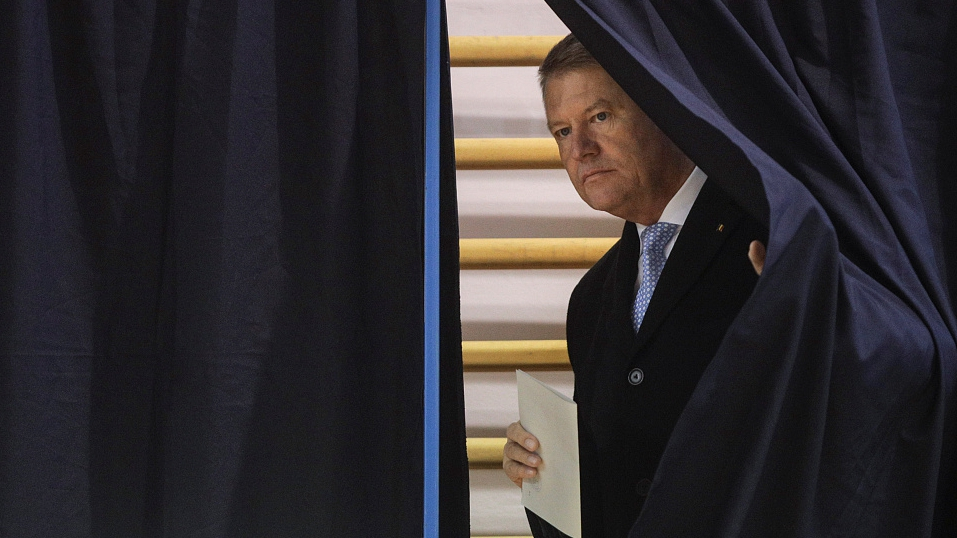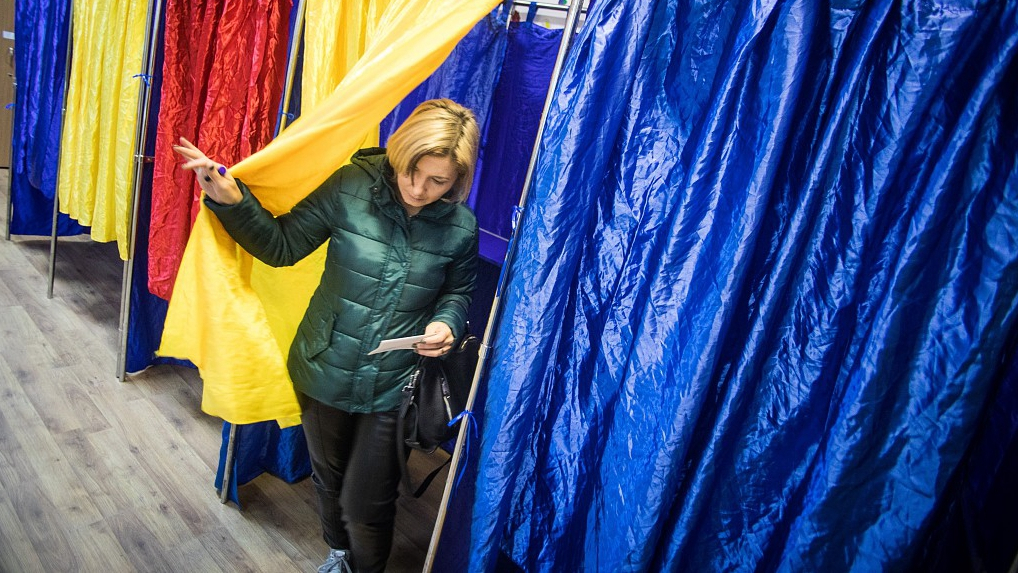Incumbent Klaus Iohannis won re-election as Romanian president on Sunday, confirming the pro-European trajectory of the eastern EU member state.
The center-right former physics professor won slightly more than 63 percent of the vote with 95 percent of ballots counted.

Klaus Iohannis leaves a polling booth during the second round of Romanian presidential elections, Bucharest, Romania, November 24, 2019. /VCG Photo
Klaus Iohannis leaves a polling booth during the second round of Romanian presidential elections, Bucharest, Romania, November 24, 2019. /VCG Photo
His opponent, Social Democrat (PSD) leader and former prime minister Viorica Dancila, received the remaining 37 percent, the worst-ever result for her party.
"I promise to be a president for all Romanians... A modern, European, normal Romania won today," Iohannis said.
What's the background?
Iohannis, a 60-year-old from the German minority who already staged a surprise win over the PSD in 2014, has campaigned to help build functioning institutions without corruption.
The election was fought against a backdrop of deep resentment over controversial judicial reforms seen to benefit PSD politicians, which led to massive street protests and irked Brussels.
The PSD-led government collapsed in October in a no-confidence vote, capping months of political uncertainty under the left-wing party.

A woman exits a polling booth during the second round of Romanian presidential elections, Bucharest, Romania, November 24, 2019. /VCG Photo
A woman exits a polling booth during the second round of Romanian presidential elections, Bucharest, Romania, November 24, 2019. /VCG Photo
A total of 18.2 million Romanians were eligible to vote, including a record 650,000 voters abroad.
What's the PSD's record?
The PSD government had engaged in a long battle with the European Union over allegations it was trying to push through the measures to neuter the judiciary. Iohannis backed Brussels in the dispute.
And while nationalism has been less present in Romanian politics than elsewhere in the region, the PSD tried to frame its clashes with EU institutions as evidence that it was standing up for Romania.
After the PSD-led administration's fall, Iohannis tasked ally Ludovic Orban with forming a new government to be in place until legislative elections due late next year.
Former foreign minister Cristian Diaconescu said Iohannis, who has made the rule of law a central plank of his campaign, represents the "only European and Euro-Atlantic option."
Under the constitution, Romania's president is responsible for foreign affairs as well as approving the appointment of judges and top prosecutors.
(With input from AFP)